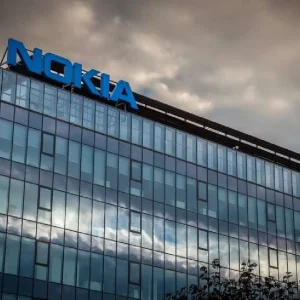
Tensions between the old and new guard of technology have been rising in the past year. The pandemic saw a surge in the use of network traffic as billions of people across the globe were forced to stay home and temporarily live out their lives – work and play – from the comfort of their living rooms. The telecommunications industry, which has long managed the infrastructure backbone of the modern digital economy, is now demanding big tech companies like Netflix, Facebook and Amazon cough up their fair share of the cash required to prevent these networks from collapsing under the weight of traffic they’re generating.
Underpinning this debate is the supposed decline of the entire telecoms industry as new entrants to the digital economy uproot conventional market dynamics. But recent figures and projections of the telecoms industry paint a different picture to the story being sold. While the industry’s declining stock in the face of Big Tech is unquestionable, whether this is simply relative or symptomatic of a much longer deterioration in the sector’s prospects remains debatable.
The numbers behind telco’s supposed decline
Earlier this year, Europe’s largest telecoms companies issued a joint missive – signed by the CEOs of Telefónica, Orange, Deutsche Telekom, and Orange – demanding that social media and streaming services contribute their fair share towards the rising costs related to network infrastructure. In their letter, these companies warned that Europe’s plans for widespread 5G connectivity was at risk if its biggest internet service providers continued to shoulder these costs alone.
The numbers behind the share of global network traffic illustrate the problem for the telecoms industry. According to SandVine, an analytics company which tracks such figures, the proportion of internet traffic related to Big Tech’s services has grown by 33% since before the pandemic, and now accounts for more than half of all traffic. Streaming services like YouTube and Netflix made up almost a quarter of all network traffic throughout 2021, based on SandVine’s data.
For their part, the telecoms industry is arguing that a ‘perpetual decline in terms of profitability’ is affecting the sector’s ability to deliver high-speed connectivity - an issue that big tech can help ameliorate by contributing to the costs of network infrastructure. Recent figures illustrate how the industry has been displaying symptoms of a longer-term decline. Telecoms investors have seen a 28% return on their investments between 2015 to 2022, compared to 143% in the digital entertainment industry, according to McKinsey.
Part of the reason for the industry’s lagging growth, argues McKinsey, is down to how its core business of providing connectivity has been increasingly commoditised and dominated by other players in the digital industry. ‘Most of the value created in the industry has been captured by so-called edge players—those manufacturing handsets, developing apps, building infrastructure, or providing streaming or other digital services,’ the firm said in a recent report. As a result, the market capitalisation of the 25 biggest telecoms operators has shrunk by 50% in a decade, while social media companies have seen their value more than double within the same period.
The situation could not be more different for Big Tech. Even so, ‘we cannot see any evidence of a failure in the telco business model ... in a way that would justify demanding a subsidy from other sectors,’ one source at a large tech company told Reuters recently. ‘It's extortion, not economics.’
Reality behind the decline narrative
Despite this ongoing argument about who should pay to sustain increased traffic loads across networks, the argument that the telecoms industry is on its last legs is, at best, debatable. A report on the impact of the pandemic on the industry published by the International Finance Corporation (IFC), part of the World Bank, details how the industry has been relatively insulated from Covid-19 shocks. ‘Many telecom players—from broadband to mobile to data centre operators—have benefited from a surge in the traffic of data and voice,’ the report said. ‘As a result, the telecom sector is performing well compared to other infrastructure sub-sectors.’
While other sectors were hit by stay-at-home orders and quarantine requirements, the telecoms industry was generally exempted from such restrictions. Citing performance figures from the early days of the pandemic, the IFC noted how the stock prices of mobile network and broadband operators declined significantly less than the entire S&P 500, a stock market index that tracks 500 publicly traded domestic companies in the United States.
A closer look at recent stock prices also hints at an industry that might simply be returning to its normal state of affairs after a pandemic-fuelled boom witnessed by the technology sector at large. As of this week, the Nasdaq Telecommunications Index shows how the stock prices of the world’s biggest telecoms companies are averaging at approximately $380, a figure that is just shy of the $400 price at the start of 2020 before the pandemic hit. At the height of the tech boom last year, industry stock prices were hovering above $550, a figure previously unseen since well before the pandemic in 2018.
Other projection figures also hint at another boom on the near horizon. The industry is betting its future on the successful rollout of fifth-generation (5G) networks and, barring another global pandemic, the expected profits from widespread high-speed connectivity are set to skyrocket if recent projections are anything to go by.
According to analysts at Next Move Strategy Consulting, the 5G infrastructure market is estimated to be valued at $131bn by the end of the decade. Other industry watchers have gone even further by putting this figure at almost $ 200bn through a whopping compound annual growth rate of 47%.
Despite soaring rates of inflation across the globe, it is clear that the telecoms industry will continue to play a huge role in the world’s recovery from the pandemic. According to the International Data Corporation’s telecom services tracker, global spending on telecoms will total nearly $1.6trn this year. Recent high-profile investments made by governments on both sides of the Atlantic illustrate how serious countries are about this.
In the UK, the government launched a much-vaunted infrastructure project called Project Gigabit last year to rapidly increase the quality of broadband services across the country. Meanwhile, the US recently dedicated $65bn towards the continued development of high-speed broadband adoption and development. Some economists have also noted how the ‘conventional’ view of economics illustrates how demand for telecoms services is proportional to a country’s GDP, and these recent investments show how governments and the industry at large are intent on ramping up their connectivity services despite a tightening public purse.
Public investments aside, the path ahead for growth in the telecoms industry has been charted out by consultancies and other industry figures, with some calling for the industry to invest beyond its core broadband businesses to seize the opportunities available in gaming, music streaming, and smart home devices. According to NetImperative, these industries are estimated to be collectively valued at almost $400bn by the end of the next year. Meanwhile, others have offered solutions to the industry’s supposed decline by tapping into the booming digital marketing sector through innovations in verifying online transactions as the data passes through their networks.
And rather than rip up decades of technological expertise to meet the challenge of Big Tech in the years ahead, some analysts are calling on telecom operators to view their legacy organisations as an asset. According to PwC, the sheer breadth of experience in the telecoms industry provides a fertile ground for experimenting with low-risk ideas. ‘Indeed, transformation will enable operators to leverage their legacy assets — their customer relationships and networks — in ways that they can’t today,’ the PwC report wrote. ‘The leaner, more agile and customer-centric telecom operator will be fit for growth in the difficult B2B landscape.’






